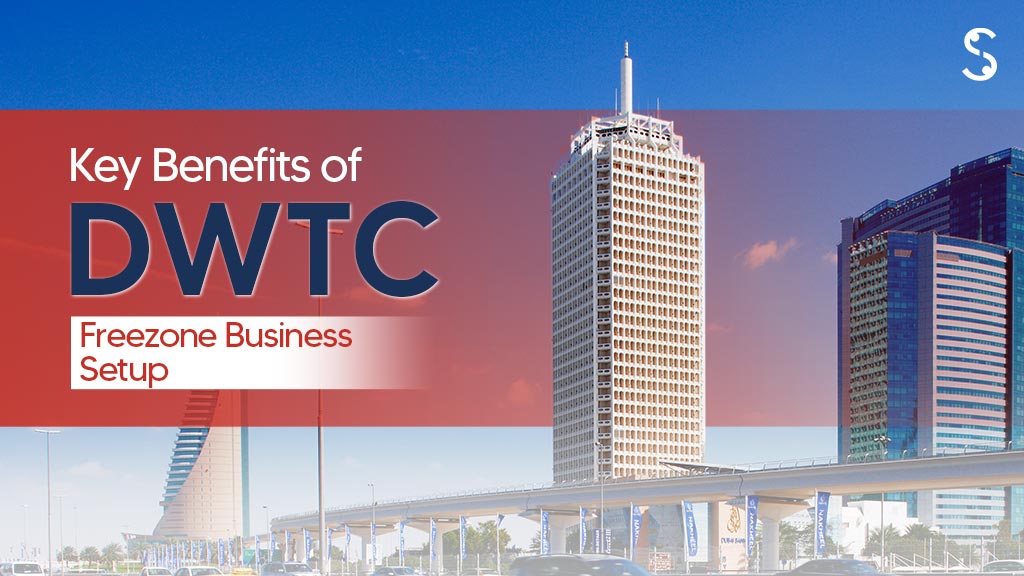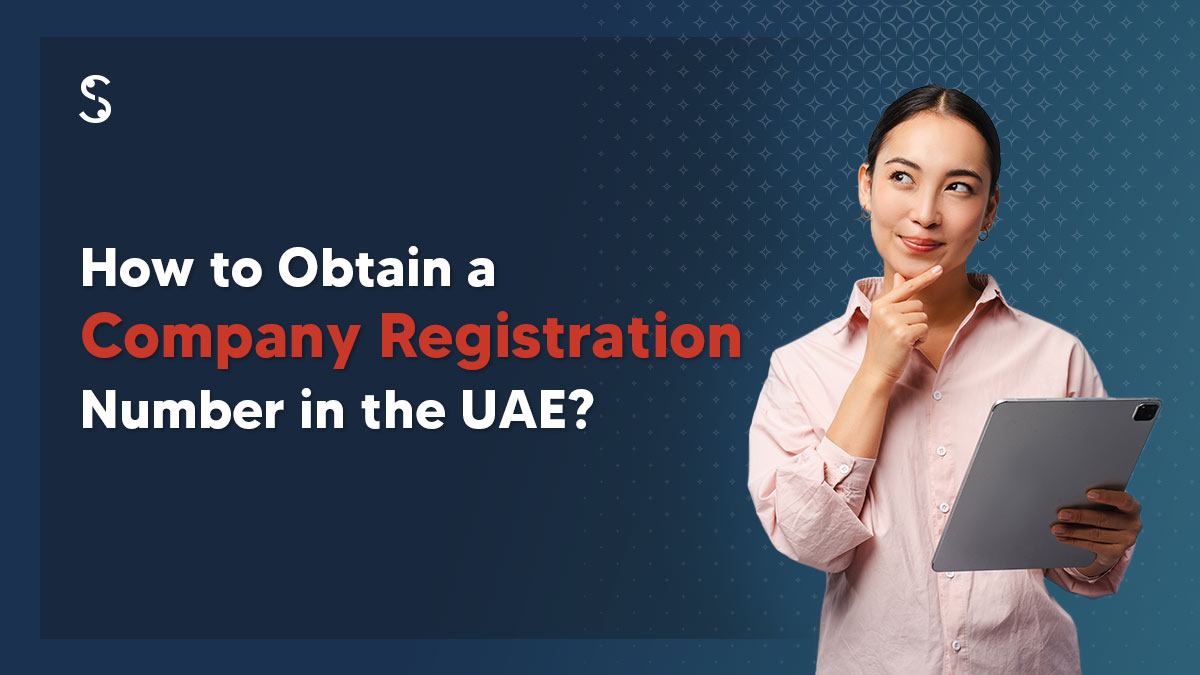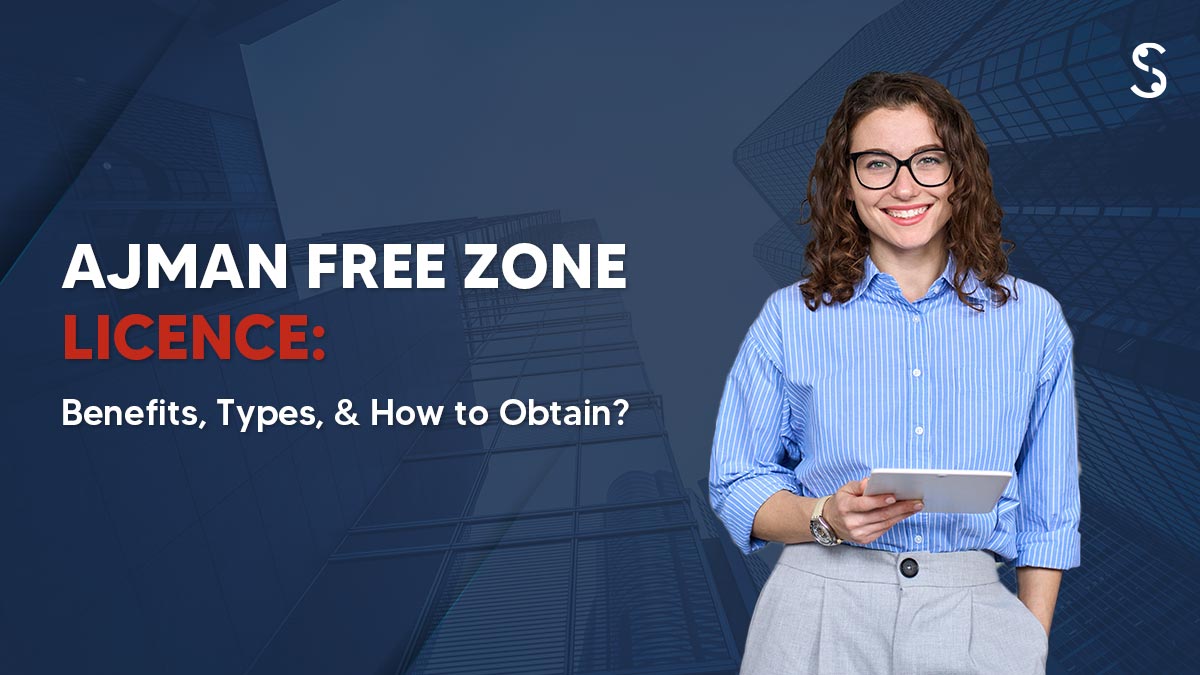Are you looking for an e-commerce license in Dubai, UAE? In recent years, e-commerce has experienced a massive surge in popularity, with more and more people turning to online shopping for their everyday needs. In fact, global retail e-commerce sales are expected to crack $8 trillion by 2026, with a staggering 2.14 billion people projected to be online shoppers by then.
As a result, businesses are increasingly looking to establish their presence in the digital marketplace. Dubai has become a key hub for e-commerce operations in the Middle East region. However, getting an e-commerce license in Dubai is essential to operate legally.
This guide will provide all the information you need to understand the process of obtaining a Dubai e-commerce license to ensure your online business complies with local regulations.
What is an E-commerce License?
An e-commerce license in Dubai is a legal permit issued by the Dubai Department of Economic Development (DED) that authorises businesses to conduct online commercial activities within the emirate. In simpler terms, it's a requirement for any business that sells products or services over the Internet, regardless of whether they have a physical store.
The primary purpose of an e-commerce license is to:- Ensures your business operates legally and avoids penalties for functioning without a license.
- This will signify that your business is authorised and committed to the following regulations, which can build trust and credibility with potential customers.
Different Types of E-Commerce Business Models
E-commerce operates through several different models, depending on the type of transactions and parties involved. The main types of e-commerce models are:
Business-to-Consumer (B2C)
- Businesses sell products or services directly to consumers.
- Example: Amazon, Flipkart, Nike’s online store.
Business-to-Business (B2B)
- Transactions take place between businesses, such as wholesalers selling to retailers.
- Example: Alibaba, IndiaMART, Salesforce.
Consumer-to-Consumer (C2C)
- Consumers sell directly to other consumers through third-party platforms.
- Example: eBay, OLX, Facebook Marketplace.
Consumer-to-Business (C2B)
- Individuals sell products or services to businesses.
- Example: Influencer marketing, freelance platforms like Fiverr or Upwork.
Business-to-Government (B2G)
- Businesses provide goods or services to government entities.
- Example: Companies bidding for government contracts through portals like GeM (Government e-Marketplace).
Direct-to-Consumer (D2C)
- Brands sell directly to consumers, bypassing retailers or middlemen.
- Example: Warby Parker, Glossier, Apple’s official website.
Subscription-based E-Commerce
- Customers subscribe to receive products or services regularly.
- Example: Netflix, Spotify, Dollar Shave Club.
Benefits of an E-commerce License in Dubai
Several benefits and opportunities come with obtaining an e-commerce license in Dubai. Here are some of the key advantages:
Legality and Compliance
An e-commerce license ensures your business operates within Dubai's legal framework, which is crucial for avoiding complications.
Tax Advantages
Dubai offers a tax-friendly environment for e-commerce businesses. You can benefit from limited corporate tax, import and export duty exemptions (depending on the Free Zone you choose), and the ability to fully repatriate your profits.
Scalability and Growth
The e-commerce license allows you to start small and scale your business gradually. You can expand your product range, increase storage capacity, or even open a physical store later, all under the same license (with additional permits).
Access to Regional Markets
Dubai is a gateway to the Middle East and North African (MENA) region. With an e-commerce license, you can easily tap into this growing market with a population exceeding 600 million.
Free Zone-Specific Benefits
Depending on your free zone, you might enjoy greater flexibility in business operations. This could include 100% foreign ownership, minimal share capital requirements, and simplified regulations compared to the mainland.
Building a Global Brand
Dubai's reputation as a global trade hub can elevate your brand image internationally. The e-commerce license can be a stepping stone to establishing yourself as a reputable player worldwide.
Types of E-commerce License in Dubai
Several types of e-commerce licenses are available in Dubai, depending on the nature of your business. Here are the main types:
E-Trader License
This license, issued by the Dubai Department of Economic Development (DED), is ideal for individuals and home-based businesses. It allows selling products/services via social media platforms.
Portal License
Required for businesses operating online marketplaces that connect buyers and sellers, such as directory websites and classified ad platforms.
Commercial License
Suitable for businesses involved in importing, exporting, and selling goods online. It allows setting up a physical office and warehouses in Dubai.
Freelance Permit
Designed for independent professionals offering digital services like content writing, graphic design, and marketing. It is issued by Free Zones like Dubai Media City, IFZA, RAKEZ, AJMAN and Dubai Internet City.
Free Zone E-commerce License
Enables businesses to operate within Dubai’s Free Zones, offering tax benefits. Popular Free Zones include Dubai CommerCity, Dubai South, and Jebel Ali Free Zone (JAFZA).
Offshore E-commerce License
It is ideal for businesses operating from Dubai without a physical office. It allows international transactions but does not permit direct trade in the UAE market.
Choosing the right e-commerce license in Dubai depends on your business model, target market, and operational needs.
How to Get an E-commerce License in Dubai in 2025
Obtaining an e-commerce license in Dubai, UAE: Here is a step-by-step guide.
Step 1: Choose Your Jurisdiction
The first crucial step is deciding where to set up your business: on mainland Dubai or in a free zone. Each has its advantages and limitations. Mainland Dubai offers access to the wider UAE market and full ownership, but it may have high setup costs.
On the other hand, free zones provide benefits like tax exemptions and ownership flexibility, but they may restrict your ability to trade directly within the UAE.
Step 2: Decide on a Legal Structure
Choose the appropriate legal structure for your business:- Sole Proprietorship
- Limited Liability Company (LLC)
- Branch of a Foreign Company
Step 3: Select Your Business Activity
Identify the specific products or services you plan to sell online. This will help determine the most appropriate e-commerce license type.
Step 4: Choose a Trade Name
Select a unique trade name for your business that complies with the Department of Economic Development (DED) naming conventions.
Step 5: Register Your Business
Once your initial approval is granted, proceed with registering your business entity. Submit a formal application to the DED or the relevant free zone authority for the specific e-commerce license you have chosen. This will involve paying applicable fees and submitting all required documents.
Step 6: Lease Office Space
Lease office space in Dubai, as having a physical office is a requirement. Free zones offer more cost-effective flexi-desk options.
Step 7: Obtain an E-commerce License
Obtain an official UAE E-commerce license from the DED or the respective free zone authority. You may need to pay the necessary fees to obtain the permit.
Step 8: Open a Corporate Bank Account
Choose a bank in Dubai and open a corporate bank account. You will need your trade license, MOA, and other corporate documents.
Consider consulting a business setup specialist in Dubai at Shuraa for guidance.
Documents Required for a Dubai E-commerce License
Gather the necessary documents, which typically include:- Passport copies of the shareholders and directors
- Emirates ID copies (if applicable)
- Business plan
- Initial approval certificate
- Trade name reservation certificate
E-commerce License Dubai – Cost & Factors to Consider
The UAE ecommerce license cost varies depending on several factors, with prices ranging from 6,500* AED to 50,000 AED*. This flexibility allows businesses to choose a plan that suits their needs and budget.
Breakdown of Additional Costs:
Along with the Dubai e commerce license, businesses should consider the following expenses:- Trade Name Reservation Fee
- Office Rent (if required)
- Initial Approval Fees
- Registration Fees
- Visa Fees (for employees or investors)
- Investor’s Medical and Emirates ID Costs
- Specialized Permits (if applicable)
- Other Government Fees
Key Factors Affecting the Cost:
- License Type: Different business activities and license types impact the overall cost.
- Business Location: Mainland vs. Free Zone: Free zones may have lower base fees but additional costs for office space and other services.
- Business Size & Structure: Larger businesses or those with complex structures may have higher costs.
- Visa Requirements: If visa sponsorship is needed, additional fees will apply.
For the cheapest ecommerce license Dubai, consult the experts at Shuraa Business Setup. Our consultants will assess your business model and help you obtain the most suitable license within your budget.
Legal Considerations After Obtaining UAE E-commerce License
Even after obtaining your UAE e-commerce license, there are some important legal considerations to keep in mind for ongoing operations.- The UAE has a strong consumer protection framework. You must comply with regulations regarding product safety, labelling, warranties, returns, and refunds.
- The UAE has a data privacy law like GDPR (General Data Protection Regulation) in Europe. Ensure you have a robust data privacy policy in place and obtain user consent for collecting and handling customer data.
- While Dubai offers tax benefits, understand your VAT (Value Added Tax) obligations, especially if you exceed the registration threshold
- Certain product categories might require additional permits or certifications depending on their nature (e.g., electronics, food items).
- Maintain accurate and detailed records of your transactions, inventory, and customer interactions for potential audits or legal requirements.
Get Your UAE E-commerce License with Shuraa India!
Getting a UAE e-commerce license can open up lots of opportunities in a thriving market. Here are the key points you need to remember - understand the different types of e-commerce licenses, follow the steps to apply, be aware of the costs involved, and make sure you meet all the legal requirements. Whether you choose a Free Zone, Mainland, or Offshore license, it's essential to plan carefully and follow the rules.
For a smooth and easy setup, get in touch with Shuraa India. We can help you with everything from registering with your company and choosing the best location to getting the right license and handling all the paperwork.
With Shuraa India, you get a one-stop solution for all your business formation needs in the UAE. Let our experts guide you through each step, so you can start your business quickly and easily.
FAQs
Q1. Can I sell products online in the UAE without a license?
No, a business license is required to sell goods online in the UAE legally.
Q2. Is a license mandatory for running an e-commerce business in Dubai?
Yes, you must obtain an e-commerce license to operate legally.
Q3. What is the timeframe for launching an e-commerce business in Dubai?
It usually takes 3 to 10 days, depending on approvals and documentation.
Q4. Are e-commerce businesses in Dubai subject to taxes?
Yes, they must comply with VAT (5% if revenue exceeds AED 375,000 annually) and corporate tax (9% for profits above AED 375,000).
Q5. Why is market research essential before starting an e-commerce business?
It helps identify demand, target audience, competition, and pricing strategies.
Q6. What are the benefits of establishing an e-commerce business in Dubai?
Dubai offers a strong digital infrastructure, tax benefits, global market access, and a business-friendly environment.
Q7. How do you define an e-commerce business?
It involves selling goods or services online through platforms, websites, or social media.
Q8. Is a license required to sell on Amazon UAE?
Yes, a trade license is mandatory for selling on Amazon UAE.
Q9. Can I sell on Shopify in the UAE without a license?
No, a valid trade license is needed to operate a Shopify store in the UAE legally.
Q10. What is the validity period of an e-commerce license in Dubai?
It is typically valid for one year and must be renewed annually.








